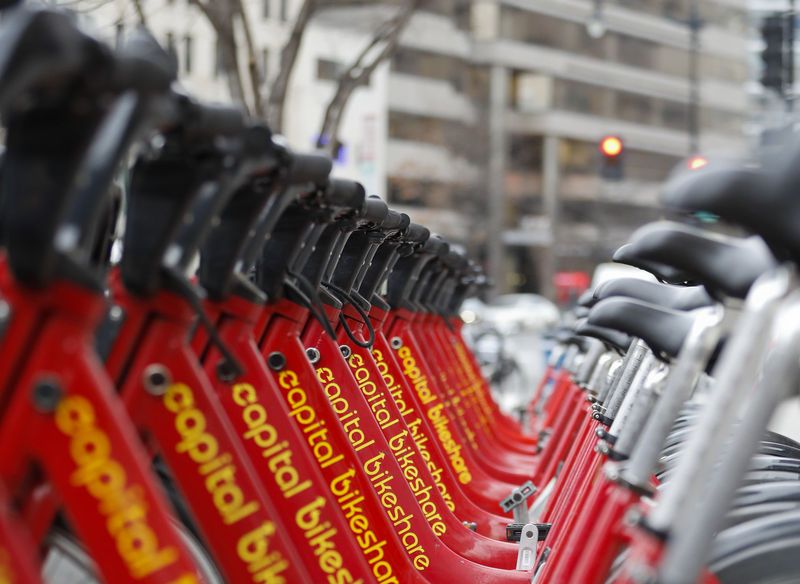
Lyft is Creating a Bike Sharing Service
Daniel Johnson — June 30, 2019 — Autos
Lyft is adding a bike-sharing service to its app. The service will be available in Washington DC, where users can either call for a car or rent a bike in the Lyft app. The program has already been launched in New York City as well as the Bay Area. Lyft is able to expand in this way since it purchased Motivate, which was the company that created Citi Bike and other bike-sharing organizations. Since this purchase, Lyft has attempted to rapidly expand into a bike-sharing service.
The Washington DC service will have 4,300 conventional bikes that users can rent for trips, as long as the trip is within the 500 locations for the service. This means that the residents of Washington DC can access a car, scooter, bicycle or transit directions all within the Lyft app.
Image Credit: Associated Press
The Washington DC service will have 4,300 conventional bikes that users can rent for trips, as long as the trip is within the 500 locations for the service. This means that the residents of Washington DC can access a car, scooter, bicycle or transit directions all within the Lyft app.
Image Credit: Associated Press
Trend Themes
1. Bike-sharing Integration - Lyft's addition of a bike-sharing service to its app demonstrates the trend of integrating multiple transportation options into a single platform.
2. Rapid Expansion - Lyft's purchase of Motivate and subsequent expansion into bike-sharing services indicates the trend of companies rapidly expanding their offerings in the transportation industry.
3. Multimodal Transportation - The ability for users to access cars, scooters, bicycles, and transit directions all in one app showcases the trend of providing multimodal transportation options through a single platform.
Industry Implications
1. Transportation - The integration of bike-sharing into Lyft's app presents disruptive innovation opportunities for the transportation industry, allowing for seamless and convenient access to different modes of transportation.
2. Technology - The expansion of Lyft's app to include bike-sharing demonstrates disruptive innovation opportunities within the technology industry, particularly in the realm of transportation technology and app development.
3. Urban Planning - The trend of integrating various transportation options into a single platform highlights disruptive innovation opportunities in urban planning, as cities seek to create more efficient and sustainable transportation networks.
2.1
Score
Popularity
Activity
Freshness























